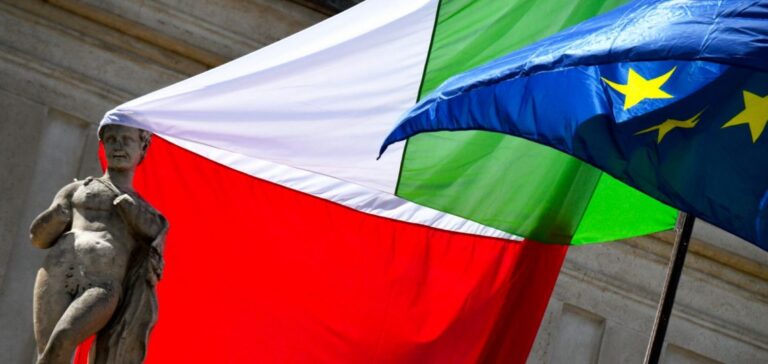The Italian employers’ association called on Monday for a package of aid measures of “40 to 50 billion euros in 2023” to cope with soaring energy prices and avoid the bankruptcy of “thousands of companies” and the loss of “hundreds of thousands of jobs”.
“If it cannot count on European solidarity to reduce the energy bill”, the next government of Giorgia Meloni “will have to resort to other resources” to support businesses, pleaded Carlo Bonomi, president of Confindustria, the main employers’ organization.
“I am more concerned now than at the beginning of the pandemic,” he assured in an interview with the daily La Stampa. “Without industry, there is no Italy. If we close thousands of companies, hundreds of thousands of jobs are lost”.
The energy bill of Italian companies is expected to swell to 110 billion euros in 2022, compared to the level before the coronavirus pandemic, of which 55.6 billion payable in the period September to December, according to a report by the Confindustria study center published Saturday.
The 40 to 50 billion euros needed next year “can be found in the thousand billion plus of public spending,” said Bonomi. Otherwise, “a budgetary slippage may be inevitable”.
Mario Draghi’s outgoing government has already spent 66 billion euros to support households and companies in the face of the energy crisis, financed by higher than expected tax revenues in a context of strong growth.
But gross domestic product (GDP) is expected to suffer “a slight decline” in the second half of the year, which could continue into the first quarter of 2023, according to Rome’s forecast.
Such a recession would reduce tax revenues and limit the room for manoeuvre of the future populist government of post-fascist leader Giorgia Meloni, winner of the September 25 legislative elections.
While Matteo Salvini’s far-right League, one of the coalition partners, is calling for 30 billion euros in aid, Ms. Meloni has been reluctant to accept any budgetary extensions, while Italy is already burdened with a debt that has reached 150% of GDP.
Germany is in the process of finalizing a 200 billion euro energy aid plan, which has earned it strong criticism from its European partners, including Italy.






















